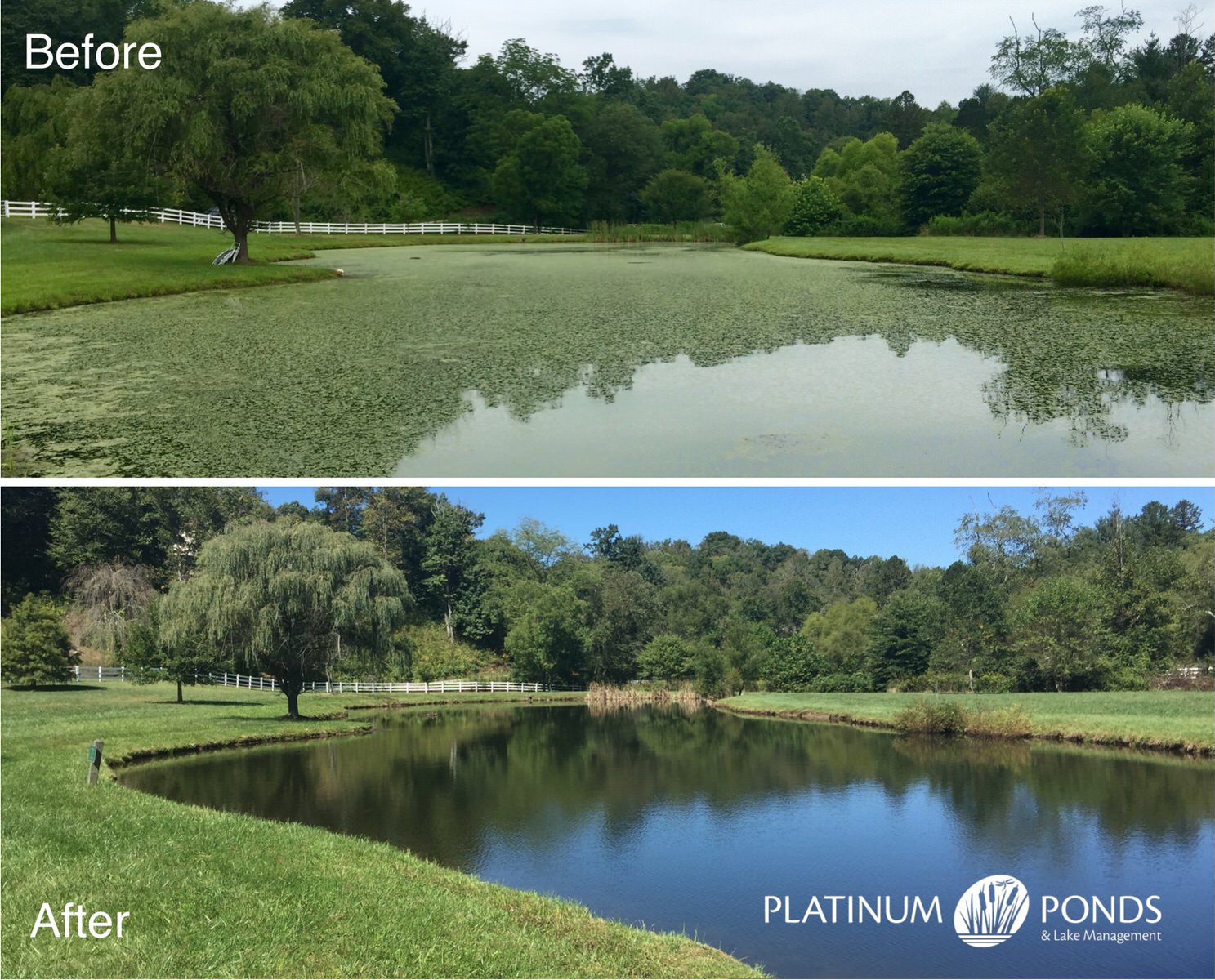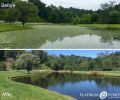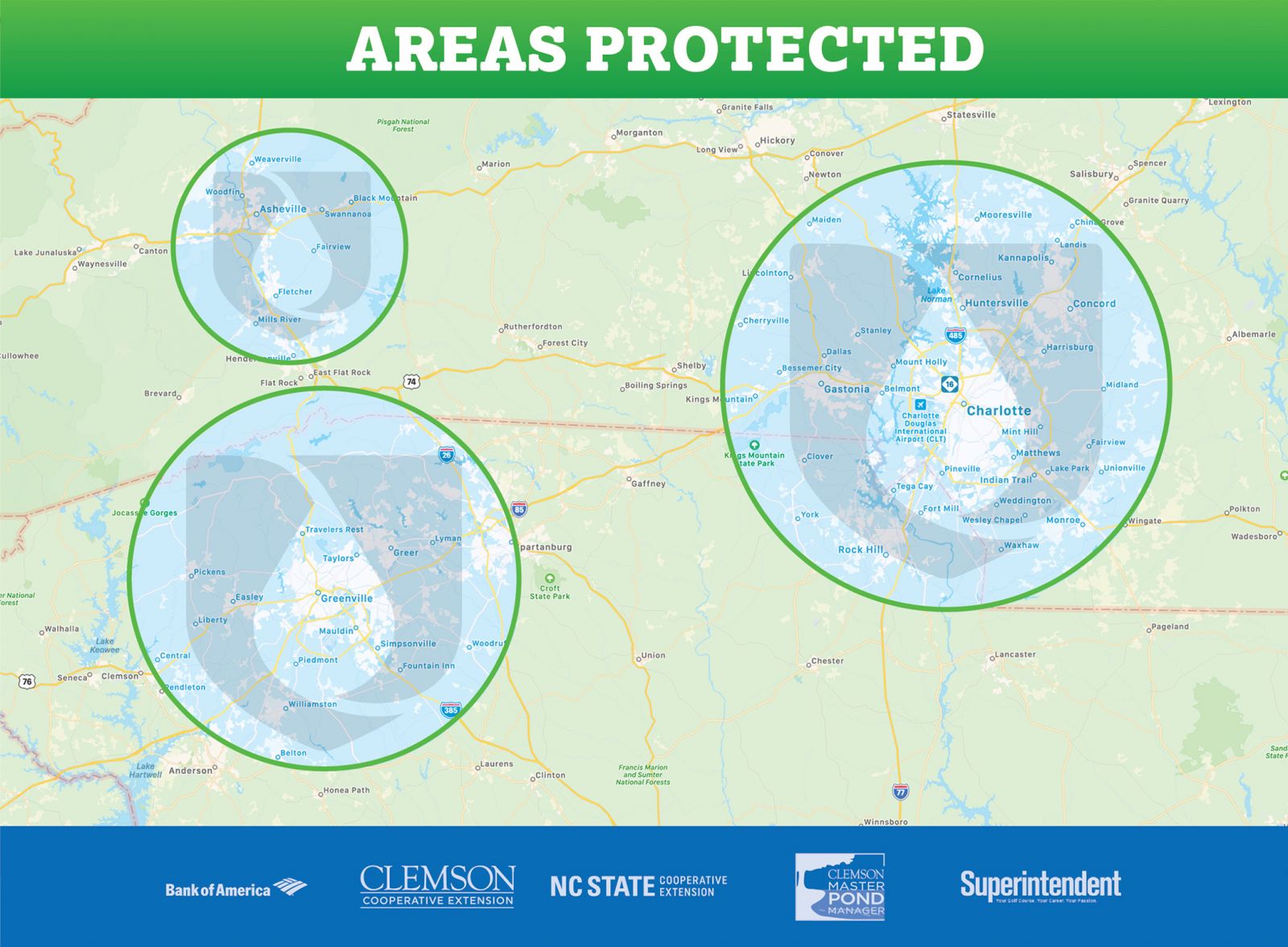One morning Jana woke up to her pond covered in an ugly green watermeal.
She didn’t want her friends and family to think she didn’t take care of her pond, so she went out and bought online about $400 worth of herbicides to kill it.
It seemed to be going well until she saw the watermeal coming back.
Frustrated, she called us and asked about it. We were able to explain because we, too, had tried the same thing.
Herbicides that can be bought at any store typically won’t work, nor will the results last.
We explain to her about how we protect, plan, and preserve ponds with our secret, PROactive solution. She decided to let us guide her to keeping her pond healthy and beautiful for generations to come!

What is Watermeal?
Watermeal, also known as Wolffia, is a floating, bright green, seed-like rootless plant from the Lemnaceae family. It resembles cornmeal, except it’s floating on the water.
What does Watermeal look like?
As I mentioned above, it is bright green, seed-like, and resembles cornmeal. Its size is smaller than one millimeter, so it’s tiny!
Fun fact: watermeal is the smallest seed-bearing plant in the world!
It is also a free floating plant. Along with making your pond or like unappealing, it can harm the fish population.
How fast does Watermeal grow?
You can find water meal in North Carolina and South Carolina among other places. It tends to do best in calm waters that are near wooded areas.
Watermeal thrives in nutrient-rich environments and can spread fairly quickly. Its small size makes it difficult to control. Humans and animals (such as duck and geese) can help spread water meal from pond to pond.
Watermeal is prevalent during Spring, Summer, and early Fall.
How do I kill Watermeal?
Collecting watermeal is almost comical because it’s so small and reproduces so quickly.
Systemic treatments such as Sonar work in very few ponds since it requires little to no flow of new water. It takes 30 plus days of water meal drinking the herbicide to kill it making it not the best choice most of the time.
With slower results and costing $300-$600 to treat a one-acre pond is it best chosen when killing multiple types of aquatic weeds at the same time. Regardless, it does require a license to apply in North and South Carolina in most ponds and lakes.
Now serving Greenville SC, Spartanburg SC, Asheville NC, & Charlotte NC areas.
Get started. Become a member today!


